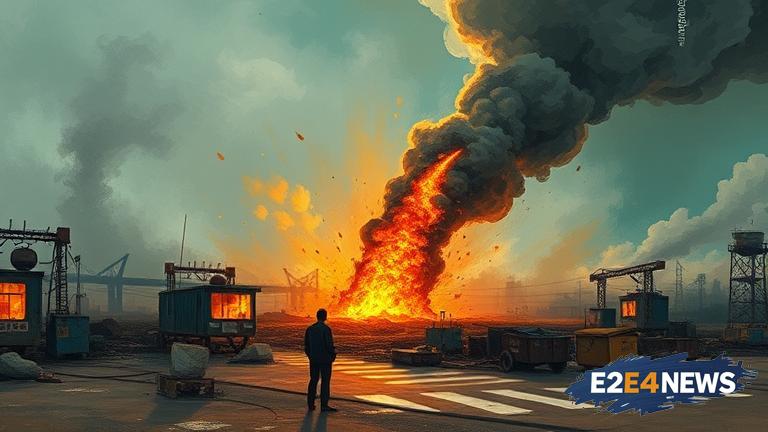The island nation of Sri Lanka has been grappling with an unprecedented economic crisis, characterized by soaring inflation, depleted foreign exchange reserves, and a severe shortage of essential goods. The crisis has sparked widespread protests and demonstrations, with citizens demanding the resignation of the government. The economic downturn has been exacerbated by a combination of factors, including a decline in tourism revenue, a significant increase in foreign debt, and a series of policy missteps by the government. The situation has become so dire that the country has been forced to seek assistance from the International Monetary Fund (IMF). The IMF has agreed to provide a bailout package, but the conditions attached to the loan have sparked controversy and debate. The government has been criticized for its handling of the crisis, with many accusing it of being slow to respond and ineffective in its decision-making. The opposition has seized on the crisis, calling for the government to be held accountable and for fresh elections to be held. The economic crisis has also had a significant impact on the country’s poor and vulnerable populations, who are struggling to access basic necessities like food and medicine. The situation has been further complicated by a shortage of fuel, which has led to long queues and rationing. The government has announced a series of measures aimed at addressing the crisis, including a plan to increase taxes and reduce spending. However, these measures have been met with skepticism by many, who argue that they do not go far enough to address the root causes of the crisis. The economic crisis has also had a significant impact on the country’s business community, with many companies struggling to stay afloat. The crisis has sparked a wave of bankruptcies and layoffs, and many are worried about the long-term impact on the country’s economy. The government has announced plans to establish a series of committees and task forces to oversee the response to the crisis, but many are questioning the effectiveness of these measures. The international community has also been watching the situation closely, with many countries and organizations offering assistance and support. The United States, India, and China have all offered aid packages, and the European Union has announced plans to provide significant financial support. Despite these efforts, the situation remains precarious, and many are worried about the potential for further instability and unrest. The economic crisis has also raised questions about the country’s long-term prospects and its ability to recover from this devastating blow. The government has announced plans to implement a series of reforms aimed at addressing the root causes of the crisis, but many are skeptical about the ability of the government to implement these reforms effectively. The situation remains fluid, and the outcome is far from certain. The people of Sri Lanka are holding their breath, waiting to see what the future holds for their country.
